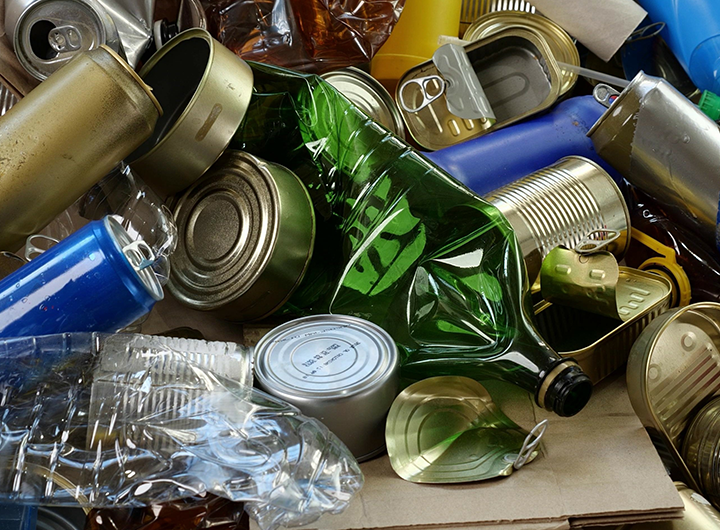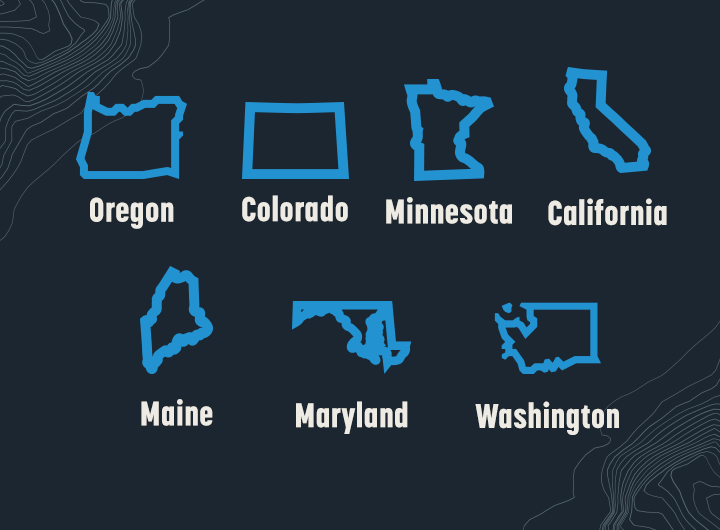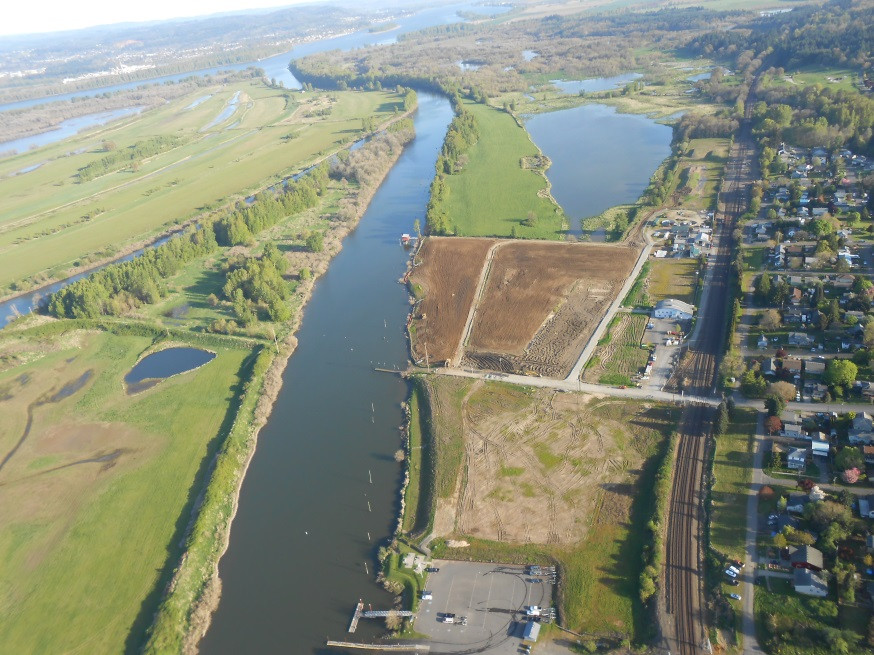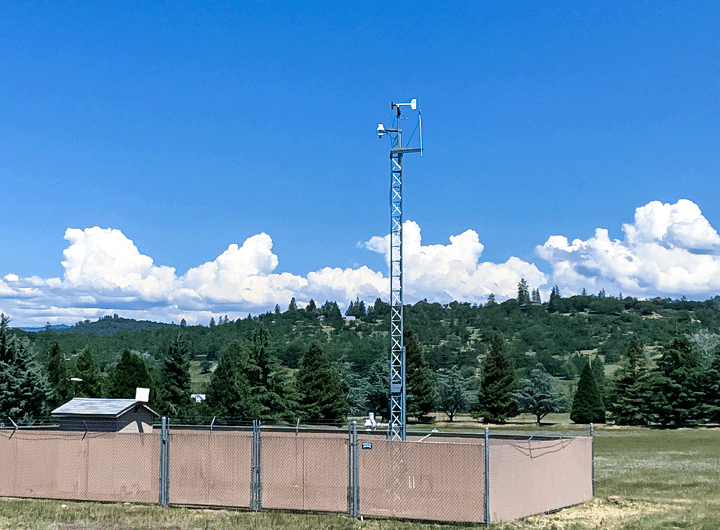Thought Leadership
Oregon's Recycling Modernization Act and What Producers Need to Know

Effective July 1, 2025, Oregon’s Recycling Modernization Act (RMA) introduces major changes to how recycling is managed across the state. This law shifts financial responsibility for the recycling, or end-of-life management, of a product to producers of packaging, food serviceware, and printing and writing paper. If your business sells or distributes these products in Oregon, it's important to understand your obligations under the RMA.
What is the purpose of the RMA?
The RMA seeks to create a consistent, efficient, and environmentally responsible recycling system as part of Oregon’s efforts to reduce plastic pollution and promote a circular economy.
Who must comply?
The RMA applies to certain businesses—called producers—selling or distributing covered products into Oregon. Covered products include:
- Packaging: Materials such as paper; flexible or rigid plastic; and glass and metal packaging used to contain, protect, or ship products.
- Food serviceware: Single-use items for ready-to-eat food such as cups, lids, straws, cutlery, and cling wrap.
- Printing and writing paper: Items such as newspapers, magazines, catalogs, and copy paper.
Producer responsibility can fall on brand owners, licensees, or importers, depending on the type of covered product and how the product enters the Oregon market.
Are there any exemptions to the RMA?
Some businesses and organizations are exempt from RMA requirements, including:
- Small producers with under $5 million in global annual revenue or that sold less than one metric ton of covered products (i.e., packaging, food serviceware, or printing/writing paper) in Oregon in the previous year.
- Restaurants and food carts serving ready-to-consume food or beverages.
- Small, single-location retailers without online sales.
- Nonprofit organizations and public bodies.
The RMA also exempts several materials such as beverage containers covered by Oregon’s Bottle Bill, books, and pallets. You can find a list of excluded materials here.
What are the requirements for compliance?
Producers are required to:
- Register with a DEQ-approved Producer Responsibility Organization. The Circular Action Alliance is currently the only registered PRO in Oregon, handling producer registration, fee collection, compliance, and recycling operations.
- Estimate and report the weight of each material type for covered products sold into Oregon in 2024. CAA has published reporting guidance that includes accepted estimation methodologies.
- Pay fees to CAA based on weights and material types of covered products. PRO fees comprise base fee rates that correspond with recycling costs for various materials. A PRO’s fee structure is required to encourage producers to reduce their products’ environmental impact. Lower fees apply to products with less impact, while higher-impact products incur higher fees, based on factors like recycled content, product-to-packaging ratio, material choices, life cycle impacts, and recycling rates.
Producers with under $10 million in global annual revenue or that sold less than five metric tons of covered products (i.e., packaging, food serviceware, or printing/writing paper) in Oregon in the previous year may choose to pay a flat fee depending on the tons of covered products sold.
How will CAA use the funding from producer fees?
Under the RMA and EPR laws, producer fees primarily support residential waste management programs and typically cover the costs of collection, sorting, and processing of packaging. These fees also fund recycling education and outreach, infrastructure improvements, and development of end markets for covered products. Read CAA’s plan for managing covered products here.
What are the risks of noncompliance?
Penalties for noncompliance can be up to $25,000 per day, and the Oregon Department of Justice may also prohibit the sale of noncompliant products. Additionally, CAA will publish a public registry of compliant and noncompliant producers.
How are other states handling recycling?
As of July 2025, seven states have passed EPR packaging laws with varying requirements and implementation timelines.

- Oregon: The producer registration deadline was October 1, 2024, and the reporting deadline was March 31, 2025.
- Colorado: The producer registration deadline was October 1, 2024, and the reporting deadline is July 31, 2025.
- Minnesota: The producer registration deadline was July 1, 2025. A reporting deadline has not been identified yet.
- California: The producer registration deadline is September 5, 2025, and the preliminary reporting deadline is November 15, 2025.
- Maine: The producer registration and reporting deadline are in May 2026 (no dates identified yet.
- Maryland: Maryland’s EPR legislation does not require producers to register with or report data to a PRO.
- Washington state passed EPR legislation (the Recycling Reform Act) in 2025, and the Department of Ecology is scheduled to begin rulemaking in January 2026.
Although registration and/or reporting dates for some states have passed, your organization can still register with CAA and report 2024 supply data as soon as possible. This can help minimize potential penalties and late fees.
How can MFA's sustainability experts help you?
Oregon’s RMA marks a significant shift in recycling management and funding. While compliance requires initial effort, it’s also a chance for businesses to be sustainability leaders. If you think EPR rules might apply to your organization and you’d like help figuring out your next steps, please reach out to Bill Beadie—our team can help with compliance strategy, supply data collection, and reporting.
This article provides an overview of the law and reflects the authors' opinions. It is not intended to serve as legal advice. For advice specific to your situation, you should consult an attorney.
Contact
Have Questions About the Recycling Modernization Act?
Contact us to learn more about Oregon's RMA and how we can help.





